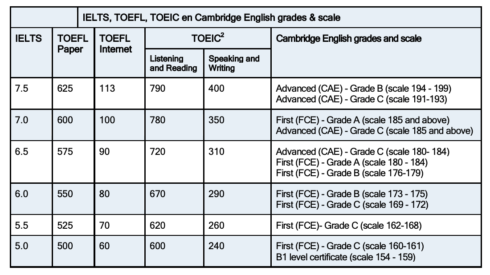Application & admission procedure
Want to apply to the Master in Audio Communication & Sonology at the Royal Conservatoire? Find out how to apply by following the step-by-step guide below.
Introduction
Candidates who wish to follow the Master in Audio Communication & Sonology register with the TU Berlin first. During the first semester in Berlin you will follow the regular programme in Audio Communication. At the end of the first semester you can apply for Audio Communication & Sonology in The Hague.
If you are accepted for the course, you will follow a modified curriculum during the second semester in Berlin.
The second year of the course is spent in The Hague.
Sign up via Studielink
Deadline: 26 February
Studielink is the online registration system for higher education in the Netherlands. When you register, you will also automatically be registered with DUO (Dienst Uitvoerend Onderwijs), the agency that arranges student financing, among other things.
Note: you will now leave the website of the Royal Conservatoire. You are not done with the admission process after registering with Studielink. Please read the further instructions below first.
If you are a Dutch student, log on with your DigiD. If you do not yet have one, it can be requested at www.digid.nl. It could be several days before you receive the log-in codes.
If you are an international student, log on with a user name and password that you will be able to create for yourself in Studielink.
Apply for the course of your choice (the first step in your ‘to do’ list) under Royal Academy of Art/Royal Conservatoire The Hague. Complete each step in the screen. Detailed instructions and help with the process is available on the website of Studielink.
Collecting documents
Start by collecting all the documents you will need for your application.
- portfolio (see below)
- CV
- English proficiency (see below)
Conditions for admission
Selection for the Master specialisation Audio Communication & Sonology is based on a portfolio with compositions, recordings of live performances, or the results of research in the form of computer programs, articles, theses, etc.
You must have a Bachelor’s degree, preferably in a discipline related to Sonology, with a grade of good or very good. You must also submit a two-page study plan containing the following elements:
- A brief description of the project you plan to carry out during the Master’s course. The project can consist of a practical and a theoretical part or can be purely theoretical.
- A timetable covering four semesters, which also includes a proposal for some courses you might follow in the one-year Sonology course.
- A detailed description of the proposed project. This description should present the central research question, the context in which the research will take place and the form in which the research results will be presented (e.g., compositions, computer programs or articles).
- An overview of the subjects to be discussed in the thesis for the final exam.
Because the Master specialisation Audio Communication & Sonology is a research Master, it is not necessary to submit a separate Master study plan.
There is no live entrance exam.
Admission
Based on the information you've send, the answers you've given, documents and photo/videomaterial that you've uploaded, we'll decide if you are provisionally admitted. You will be notified by the Studentadministration of this decision on 1 April at the latest.
You are only certain of being able to enter the Royal Conservatoire and start studying in September of the following academic year when you are formally notified that you have been admitted.
English language proficiency
Bachelor’s and Master’s students and participants in a Preparatory Course must have sufficient command of both written and spoken English to follow their study programme at the Royal Conservatoire.
More information about language proficiency, courses and the tests.
Students from EU/EEA countries or Switzerland or Surinam whose proficiency in English is inadequate are obliged to follow a language course. If it is found during the admission procedure that your command of English is insufficient, you will be required to follow a course and obtain a certificate of proficiency during the first year of the course.
If you have been admitted for a Bachelor’s or Master’s programme or Preparatory Course and you are from a country outside the EU/EEA (with exception of Australia, Canada, New-Zealand, South Africa, Surinam, Switzerland, United Kingdom of Great Britain or United States of America), you must demonstrate – before 1 September - that your level of English is sufficient to follow the study programme. You can demonstrate your command of English with your score on any of the following English language proficiency tests: IELTS, TOEFL, TOEIC or Cambridge English (FCE/CAE/CPE). The test scores are valid for two years and your score must be valid as of 1 September.
The minimum standard is a score of 6.0 in the IELTS test or level 80 in the TOEFL.
Certificates from the Institutional TOEFL test, the TOEFL ITP test or other language proficiency tests will not be accepted.

After admission
Deadline: 1 September
Only when you have fulfilled all registration requirements will you be enrolled as a student. So make sure that you have submitted all requested documents before 1 September.
Non-EU/EEA students who have been admitted to a Bachelor’s or Master’s programme or Preparatory Course have to submit the proof of their English language proficiency (see step English proficiency) before 1 September.
If you are admitted you will receive information via e-mail and Studielink about payment of tuition fees.
More information on the fees and payment
Extra note for international students
Non-EU/EEA students who are admitted to the programme they applied for need an entry visa and/or residence permit. You also need to make other practical arrangements before you come to the Netherlands and when you arrive here. Please check the website for international students coming to the Netherlands for all procedures, information and contact info.